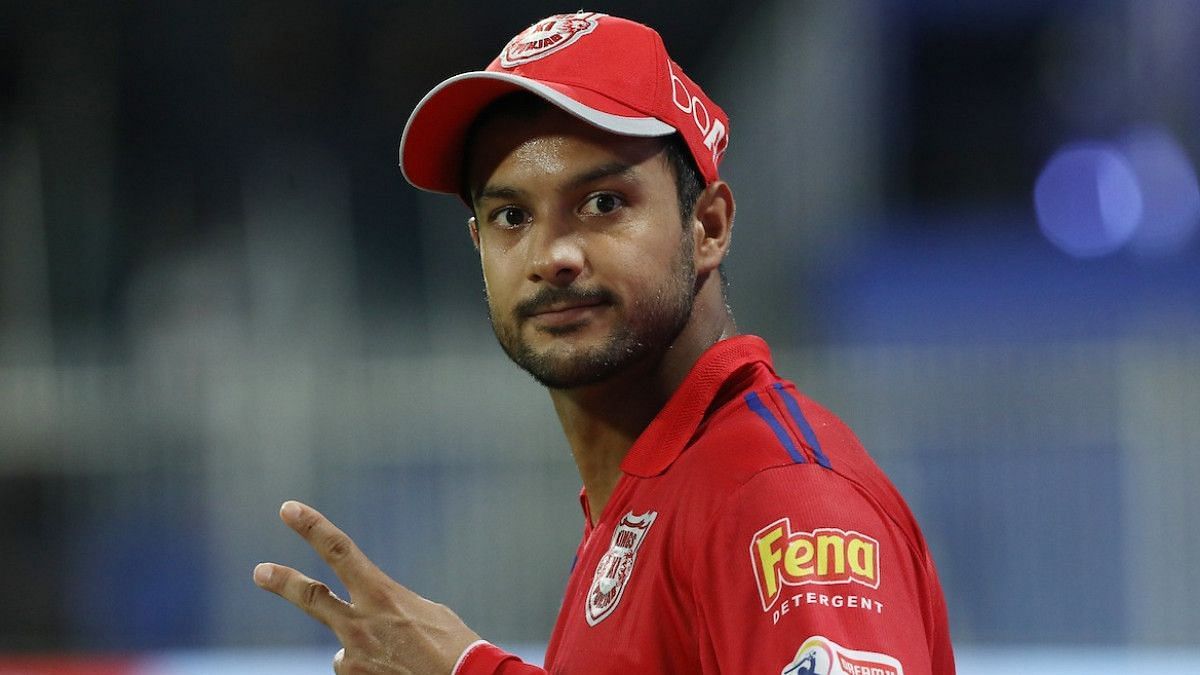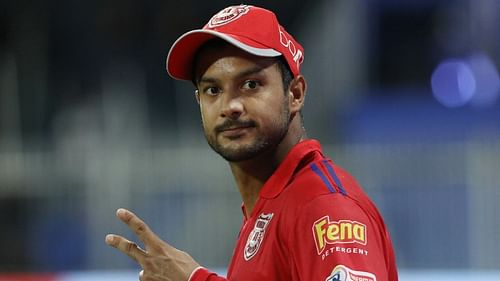
Punjab Kings continue feeling the double-edged sword of fearlessness

Over the past few years, the Punjab Kings have been synonymous with seasons of mediocrity. Since they contested the IPL final in 2014, they have not made the play-offs and for a chunk of that phase, their conservatism has stood out.
Back in 2014, they adopted a cavalier brand of cricket – led by the likes of David Miller, George Bailey, Glenn Maxwell and Virender Sehwag. They reached the summit clash too, leaving almost every opposition in their wake. Thus, it has been a little surprising that they’ve been reluctant to adopt that tack, despite history suggesting otherwise.
So, when the Punjab Kings decided to throw caution to the wind at the auction, many of their fans rejoiced. Not because they had enjoyed, in a lot of people’s minds, the best possible auction, but also because there were signs that they wanted to revert to a formula that had worked so well for them. And, of course, move away from a mantra that has proved to be their undoing in the recent past.
Against the Royal Challengers Bangalore, that came to the fore spectacularly. Despite chasing 206, the Punjab Kings barely broke sweat and romped to the target – even making those at the ground question if RCB had fallen a few runs short. They hadn’t. But Mayank Agarwal’s men had made it seem that way.
Hence, at the first time of asking, it became very clear that this is probably the approach that is going to fetch them maximum rewards. But a game later, when they folded for 137 inside 19 overs, it led to a lot of scrutiny too.
Against the Chennai Super Kings, they didn’t budge and continued deploying a fearless brand of cricket. They found themselves six wickets down inside 16 overs but the impetus at the start of the innings meant that they ultimately posted a total that was slightly above par.
Punjab Kings fell a few runs short against Gujarat Titans
When facing the Gujarat Titans, their propensity to lose wickets in pursuit of quick runs was exposed again. Liam Livingstone dazzled at one end but when he and Shahrukh Khan fell in quick succession to Rashid Khan, the Punjab Kings still had more than four overs to bat – with only Arshdeep Singh, Kagiso Rabada, Rahul Chahar and Vaibhav Arora to follow.
They managed to get close to 190 (189 to be precise) but the Punjab Kings might have been left harbouring a feeling of what could’ve been. At one stage, they were rollicking along at 152/5 after 15 overs. From that standpoint, a tally of 38 runs in five overs isn’t inspiring.
So, the elephant in the room, as you might have guessed by now, is whether this approach is sustainable for the Punjab Kings and whether they need to tweak it a touch to suit the resources at their disposal. Prima facie, it seems that this kind of method will lead to situations where they crash and burn. There is also a suggestion that this modus operandi will fall flat on days when there is immense pressure.
The actual answer, though, isn’t as straightforward.
The Punjab Kings, ever since the IPL 2022 Auction, have seemed intent on playing in this fashion. They signed an entire crop of cricketers who specialise in it too. Jonny Bairstow and Livingstone ply their trade in this particular manner for their national teams.
Bhanuka Rajapaksa isn’t averse to imposing himself at the outset, and Mayank is arguably one of the best Indian power-play batters in the league. Jitesh Sharma hits sixes for fun (he was the leading six-hitter in this season’s Syed Mushtaq Ali Trophy). Odean Smith and Shahrukh Khan, meanwhile, can bludgeon the ball and make any ground look small.
Shikhar Dhawan isn’t as much of a power-hitter but he can act as a foil and ensure that others have the requisite platform to flourish. So far this season, it seems that is the kind of role he has adopted. He hasn’t been too flashy, and has been content to play the waiting game – hoping that those around him maintain the desired run-rate. Apart from him, though, the Punjab Kings don’t really have a batter who fits into that mould.
Thus, it shouldn’t be a surprise that they are incessantly finding themselves five or six wickets down with more than four overs to play. It is, simply put, the sort of design they had in mind when they acquired the team at the auction. The question then is whether this can work continually enough for them to be a force at the IPL.
Considering how the first couple of weeks of the IPL have materialized, it might just be what distinguishes the Punjab Kings from the rest of the pack – both in a good and a bad sense. It is a strategy that is riddled with risk at every possible juncture. But it is also a move that will help them win more games, especially when they are batting first and when they require a 15-20 run cushion to counter excessive dew.
What they need to be mindful of is that wasting deliveries (by getting bowled out or having negligible resources towards the end) is just as criminal as consuming deliveries (by being more conservative). It is a balance they won’t be able to strike immediately. Even England – the gold standard as far as this approach is concerned, took a bit of time to master it. But when they did, they won the 50-over World Cup.
This isn’t saying the Punjab Kings will win this season’s IPL. Nor is it hinting that they will blow teams out of the water quite frequently. It’s just that by adopting this tack, they will have more of a chance than they ever did in the past few seasons.
They will continue to feel the double-edged nature of the sword of fearlessness. But this is what they gambled on in February, and this is what they intend on doing throughout the campaign. It may fiddle with their fans’ heart rate often but you can’t deny it’s pretty entertaining.
On early evidence, it is also just what the Punjab Kings needed and wanted to recreate but weren’t brave enough – prior to this season, to actually go through with it.

